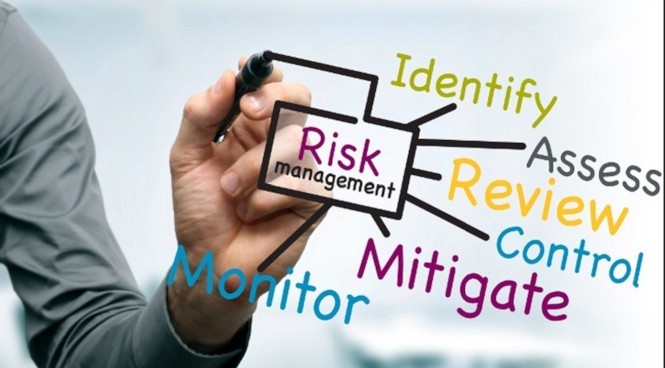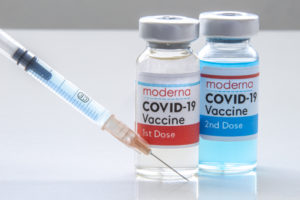
Recently Diagnosed or Relapsed? Stop Looking For a Miracle Cure, and Use Evidence-Based Therapies To Enhance Your Treatment and Prolong Your Remission
Multiple Myeloma an incurable disease, but I have spent the last 25 years in remission using a blend of conventional oncology and evidence-based nutrition, supplementation, and lifestyle therapies from peer-reviewed studies that your oncologist probably hasn't told you about.
Click the orange button to the right to learn more about what you can start doing today.
- You are here:
- Home »
- Blog »
- Multiple Myeloma »
- Autologous Stem Cell Transplant- Elderly
Autologous Stem Cell Transplant- Elderly

“Particular care must be taken to minimize toxicities, reducing doses if required, to allow continuation of treatment when appropriate.”
Hello David- I am writing to you today to ask you about my autologous stem cell transplant. I was diagnosed in August 2021 with stage 2 Multiple Myeloma. I just recently joined your coaching course about Multiple Myeloma (MM) & my wife & I are impressed with the amount of time & effort you have given to helping others survive as you have.
I have completed the first phase of induction treatment (RVD) and got my M-Spike down to .28, putting me in VGPR aka “very good partial remission.”
On Dec. 16, I started the Autologous Stem Cell Transplant process, first with Zarxio injections, then adding Mozobil. But after 2 days of stem cell collection, I could only produce 300,000, with the goal being 4-5 million.
The autologous stem cell transplant was aborted and I was given a month off, which is about to come to an end. The docs want me to try again, but I feel I have several strikes against me.
- my age – 76;
- the harshness of the treatment itself, then short & long-term side effects, especially zero immunity;
- the danger of Covid & other viruses.
Currently I am being treated at UCSD in La Jolla. In a few days, I will have a meeting with an oncologist at Scripps/MD Anderson, also in La Jolla, for a 2nd opinion.
Thanks for the info about what to ask at such a meeting.
In your opinion, is the Autologous Stem Cell Transplant the ONLY way to put my Multiple Myeloma in long-term remission, or are there other good options to ask about when we meet with either my present oncologist or the 2nd opinion doc.
Thanks very much. Looking forward to hearing from you. MMSr.
- MM Survivor
- MM Cancer Coach
- Director PeopleBeatingCancer
Recommended Reading:
Myeloma Therapy- Deeper Response or longer PFS, OS, Fewer Side Effects?
Treatment of Multiple Myeloma in Elderly Patients: A Review of Literature and Practice Guidelines
“Conclusions– In conclusion, the availability of new combination regimens and enhanced safety of ASCT has increased the treatment options for elderly patients with multiple myeloma. Combination therapies including novel agents have improved the response and survival rates in transplant-ineligible patients. MPT, MPV, and lenalidomide/dexamethasone represent new standards of care for transplant-ineligible MM patients.
It is important to assess each patient’s clinical situation and fitness for therapy to allow treatment to be provided at an appropriate intensity. Particular care must be taken to minimize toxicities, reducing doses if required, to allow continuation of treatment when appropriate. Treating myeloma in the very elderly is challenging, and clinicians should develop a personalized approach to optimize the treatment response while minimizing toxicity through careful geriatric assessment and compassionate care.
Myeloma-Reduce Infection, Long Covid, Death Risk- SARS‑CoV‑2…
““The rate of infection in patients with Multiple Myeloma is much higher than in the general population, with bacterial and viral infections predominating…”
Multiple Myeloma (MM) is sometimes referred to as a cancer of the immune system. MM negatively effects a person’s immune system. MM Therapies such as chemotherapy weaken the MM patient’s immune system. Infection is the most common cause of death for MM patients and survivors.
To complicate things, MM is a cancer of older people. The average age of a newly diagnosed MM patient is 70. Our immune system weakens as we age. Most of us MM survivors are over the age of 50.
Vaccination against the Covid-19 virus has been shown in millions of people to be safe and effective. Effective means that the risk of death is greatly reduced by getting vaccinated. Unfortunately, we MM survivors do not achieve the same efficacy against the Covid-19 virus when we get vaccinated.
To be clear, yes, vaccination reduces our risks of all things Covid-19. But we MM survivors do not develop as much immunity as able-bodied people do. It is for this reason that I am both fully vaccinated AND I supplement, exercise, etc. (see the studies linked and excerpted below).
Like the MM CC Program, I encourage MM patients and survivors to pursue the best of both conventional (FDA approved) and evidence-based non-conventional therapies to reduce our risk of all things Covid-19 virus…”
Treatment of Myeloma: Cure vs Control
“Although not often openly acknowledged, “cure vs control” is the dominant philosophical difference behind many of the strategies, trials, and debates related to the management of myeloma. Should we treat patients with myeloma with multidrug, multitransplant combinations with the goal of potentially curing a subset of patients, recognizing that the risk of adverse events and effect on quality of life will be substantial? Or should we address myeloma as a chronic incurable condition with the goal of disease control, using the least toxic regimens, emphasizing a balance between efficacy and quality of life, and reserving more aggressive therapy for later?
To be sure, if cure were known to be possible (with a reasonable probability) in myeloma, it would undoubtedly be the preferred therapeutic goal of most patients and physicians. But this is not the case. Myeloma is generally not considered a curable disease; however, new definitions of cure have been suggested, including operational cure, which is defined as a sustained complete response (CR) for a prolonged period.1,2 Cure vs control is debated because the strategies currently being tested are not truly curative but rather are intended to maximize response rates in the hope that they will translate into an operational cure for a subset of patients…”


